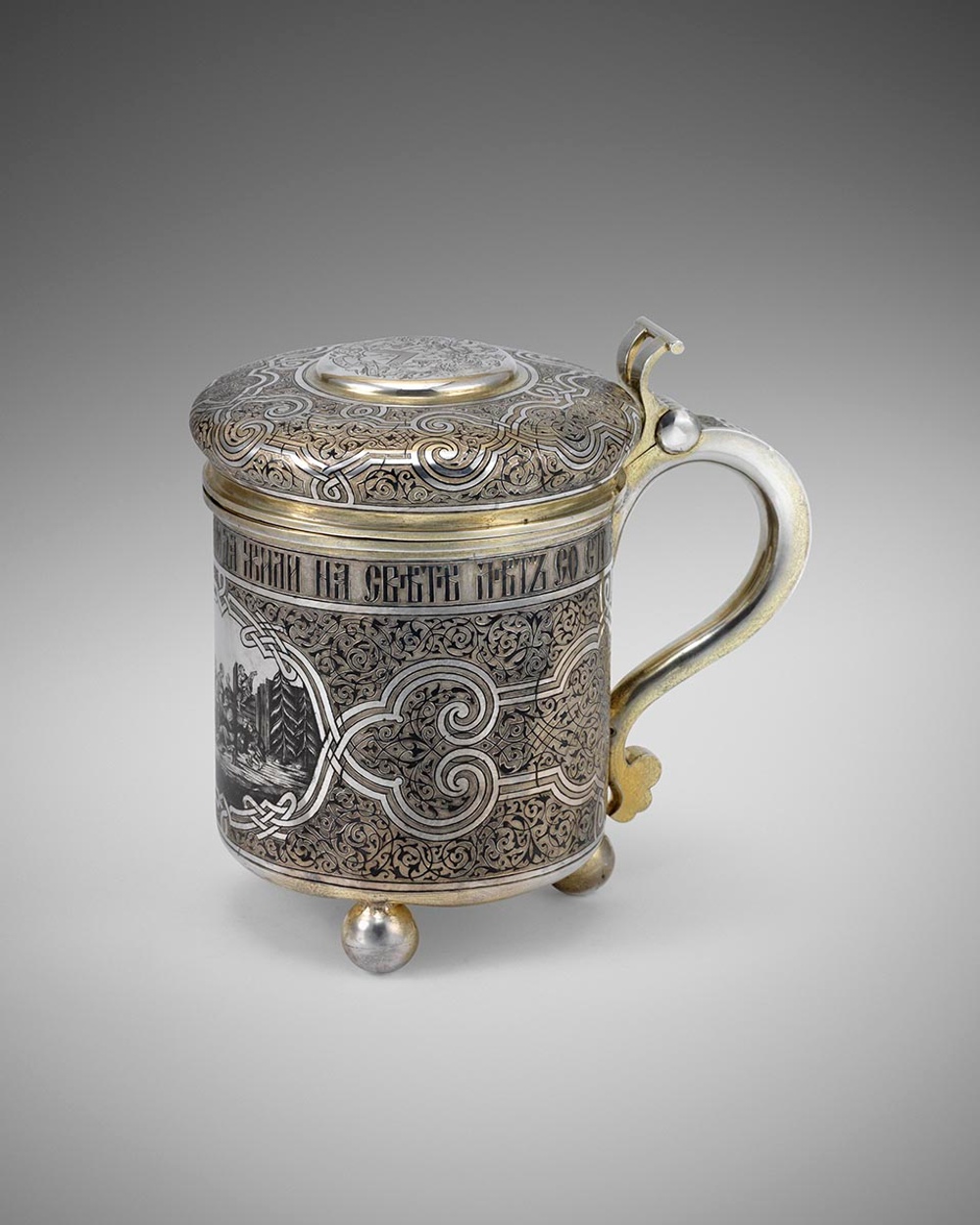Eating, Drinking & an Epidemic, the Mysterious Case of the Russian Tankard There is a large silver-gilt tankard in the Grocers’ Company Collection that is rarely seen outside the strong room. The seventeenth-century style circular body is decorated with elaborate arabesques and inlaid with contrasting black niello work. The upper rim of the circular body bears the inscription in Cyrillic ‘Our forefathers ate simply but lived on the earth to about a hundred years’. Below is a finely engraved cartouche of peasants dancing watched by a man seated at a table drinking. The form, decoration and inscription imply that it is Russian, confirmed by the 1873 assay mark for Moscow. By the later seventeenth century Moscow was the undisputed centre of niello production. The Cyrillic quotation appears on other Russian silver, for example on a drinking cup belonging to the Grand Duchess Olga Nikolaevna Romanova (1822 -1892).
The hinged and domed lid bears on top a central boss engraved with the Grocers’ Company arms. But what connects Russia and the Company? Members had certainly been central in the founding the first of the joint-stock company, the Muscovy Company in 1555. However an inscription inside the lid tells us that the tankard was ‘Presented by Lady Dimsdale’ to the Company in 1913. Her husband Sir Joseph Cockfield Dimsdale (1849-1912) had been Master of the Grocers’ Company in 1885, and Lord Mayor in 1901-2, the first Grocer to be elected since 1791. After Dimsdale’s death his widow Beatrice gave this tankard to the Company. It seems likely that it may have been one of the many gifts he received during his Mayoralty during which he carried the crystal sceptre at the coronation of Edward VII. Dimsdale had a very personal connection with Russia. The daughter of Sir Joseph’s great grandfather married her cousin Thomas Dimsdale (1712-1800) who was a surgeon. After publishing a medical treatise on the devastating disease of smallpox in 1766, he inoculated the Empress Catherine II and her son Grand Duke Paul I, at a moment when a severe epidemic was sweeping through Russia. Although Thomas declined to become her doctor, returning to England to become a banker, he received a handsome annuity of £500, a gift of £10,000, travelling expenses of £2,000 and the rank of Baron of the Russian Empire. The Dimsdale gift encapsulates the global reach of the Company and its members and the intricate web of historical connections that in this case link London and Moscow, frugality and feasting, as well as the more topical subject of epidemics and inoculation.





